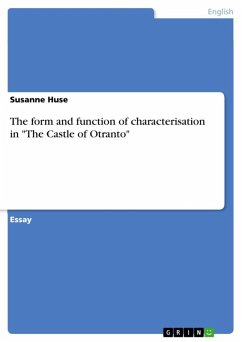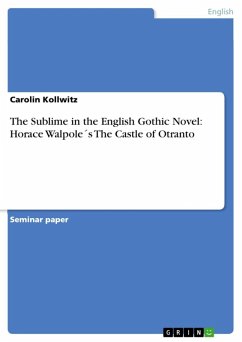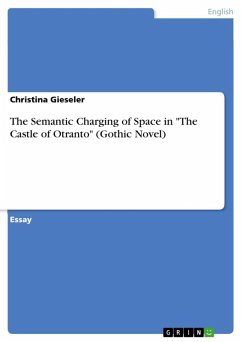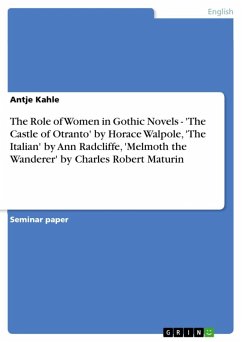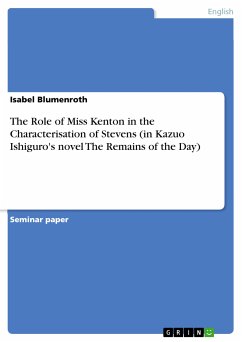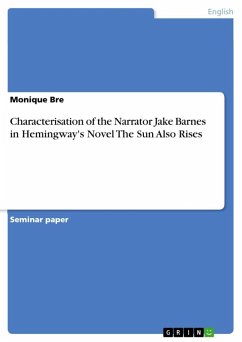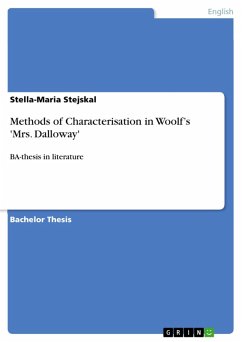Essay from the year 2007 in the subject English Language and Literature Studies - Literature, grade: 2,7, University of Wuppertal (Fachbereich A), course: The British Novel in the Late 18th and Early 19th Century, language: English, abstract: An important component of fiction is characterisation. But what does characterisation do for a story? It allows the reader to create a picture of the characters in a story in his mind and to empathise with the protagonist and secondary characters. Moreover characterisation moves the story of a literary text onward because fascinating characters and their actions are interdependent to the whole plot. This essay will look into the structural design of characterisation and how the principle of characterisation is significant in the unfold of the story. The dramatis personae in The Castle of Otranto can be separated into primary characters, secondary characters and minor characters. The main characters occupy Manfred, the illegitimate Prince of Otranto, the villain; Matilda, his daughter; Isabella, the intended wife of his son, Manfred¿s foster daughter, and Theodore, first a mysterious stranger and later revealed as the real Prince of Otranto. These characters are the most important characters because they appear frequently in the narrative and their actions and behaviours keep the plot in motion. The important secondary characters include Hippolita, Manfred¿s devoted wife; Jerome, the friar and Frederic, the believed to be death Marquis of Vicenza, Isabelläs father. Minor characters, but nevertheless quite interesting and important ones for the outcome of the story, are the servants Diego and Jaquez and last but not least, the chambermaid Bianca. Additional characters like Conrad, the son of Manfred, and Alfonsös ghost will not be considered in the essay. The first one dies in the beginning and never appears alive but he has to be mentioned because his death triggers the story off. The second one functions as kind of watchdog who reminds and threatens mostly Manfred and the domestics by causing supernatural events in the castle. ---Bibliographie >Mandell, Laura (ed.). 2007. The Castle of Otranto by Horace Walpole [1764] and The Man of Feeling by Henry Mackenzie [1771]. New York: Longman. >Napier, Elizabeth. 1984. The Failure of Gothic. Problem of Disjunction in an Eighteenth-century Literary Form. New York: Oxford University Press. >Pfister, Manfred. 1994 [1988]. Das Drama. Theorie und Analyse. München: Wilhelm Fink Verlag. >Nünning, Vera & Ansgar. 2004. An Introduction to the Study of English and American Literature. Stuttgart: Klett.
Dieser Download kann aus rechtlichen Gründen nur mit Rechnungsadresse in A, B, BG, CY, CZ, D, DK, EW, E, FIN, F, GR, HR, H, IRL, I, LT, L, LR, M, NL, PL, P, R, S, SLO, SK ausgeliefert werden.

